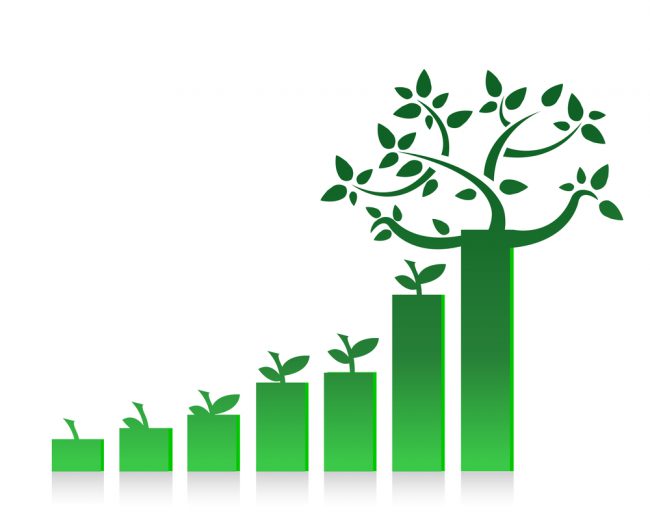
Cecilia Tortajada, Lim Wee Kiat and Ishaan Bindal
THE BUSINESS TIMES | April 30, 2020
COVID-19 and its unintended environmental impacts have been discussed at length. While there have been immediate gains, such as lower greenhouse emissions and improved air quality in numerous cities, much more remains to be done to improve the state of the natural environment in the long term.
Even before the pandemic, society at large as well as investors had already begun to expect businesses to adopt more sustainable practices and to inform their stakeholders about their efforts.
Consider sustainability reporting, an increasingly popular and pertinent practice via which firms recognise their role in society as going beyond making profits to include care for and conserving the environment. Research shows that companies that enjoy a reputation of sustainability reporting see higher valuation by the market compared to their peers. However, there is also research that indicates that sustainability reporting is somewhat stalled when it comes to driving impact. What are the options to sustainability reporting?
In Singapore, the most prominent standard adopted for environmental reporting is the GRI or Global Reporting Initiative. The initiative recognises that sustainability reporting enables businesses to consider their impacts on sustainability aspects, and to assess their environmental, social and governance (ESG) performance.
This gives businesses the opportunity to understand their risks, motivate employees, build credibility as a corporate citizen and, most important, improve communication with stakeholders.
The same premises are supported by groups such as the United Nations Global Compact, the Carbon Disclosure Project (CDP), the International Integrated Reporting Council (IIRC), and the Task Force on Climate-related Financial Disclosures (TCFD).
Our ongoing research on sustainability reporting reviews reports from 2014 by companies listed on the Singapore Stock Exchange (SGX). It covers only the top 30 companies by full market capitalisation on the SGX (STI30), as they provide a big picture of the Singapore market.
Our findings indicate an overall increased prevalence in carbon disclosure. There has also been a marked improvement in the prevalence of energy disclosure since the introduction of SGX’s “Comply or Explain Sustainability Guidelines” in 2016.
But on water issues, the results show an overall decline in the prevalence of water disclosure, with a slight improvement after the 2016 SGX guidelines. The benefits of the SGX guidelines go beyond promoting environmental performance as they extend to corporate efforts in improving social and governance practices. It is now for companies to improve both their reporting and performance. We highlight one way this is being achieved.
The work of PUB, Singapore’s national water agency, stands out as being particularly effective as its policies and practices have resulted in measurable improvements. It would thus make sense to explore a different paradigm: instead of depending on sustainability reporting, best practices and standards on water could be drawn from PUB’s experiences and lessons learnt.
PUB has made enormous progress in driving lower water consumption in the domestic sector and on setting water sustainability measures for non-domestic sector companies. Even then, many of us who now have to work from home are taking for granted the availability of clean water, and probably consume more water than usual.
In the non-domestic sector, PUB has worked with companies for years, understanding first their processes and their needs, and then developing initiatives to provide technical and financial support.
The non-domestic sector is an area of concern for the city-state. Non-domestic consumption of water is expected to rise to 70 per cent in 2060, exceeding the current 55 per cent. This will place enormous stress on available water resources.
This is where PUB’s efforts may dovetail with SGX’s on sustainability reporting, especially on water disclosure.
The agency has pioneered and implemented several standards and best practices over the years. For example, the Water Efficient Building certification programme was launched in 2004 to encourage companies to reduce water consumption. It uses benchmarks across the industry and dissemination of best practices.
In 2007, three years later, PUB launched the Water Efficiency Fund to co-fund projects that would result in at least 10 per cent reduction in water consumption within the companies.
Another effort was made in 2015: Mandatory Water Efficiency Management Practices. Large water users with net water consumption of at least 60,000 cubic metres in the previous year have to submit to PUB details of their water consumption, business activity indicators, and water efficiency plans every year for at least three consecutive years.
ON THE RIGHT TRACK
Companies are also required to install water meters within their premises to track water consumption. The collection of data and information has paid off. PUB has been able to develop sectoral water efficiency benchmarks aimed at future improvements for hotels, office buildings, retail operations, wafer fabrication and semiconductor plants, commercial laundry, data centres and biomedical manufacturing facilities.
A different approach has been taken by GRI, for example. In its revised 2018 standard on water and effluents, companies are required to disclose information on water withdrawals, water discharges, and water consumption, including from and to water-stressed areas, with no requirement to define a water-stressed area in the local context. This is much more limited.
Thanks to PUB’s initiatives, large companies in Singapore are gradually consuming less water. Much more needs to be done, but the system PUB has set, and that is continually improved, has proven to be on the right track.
In difficult times like the present, the importance of available and clean water has become more apparent than ever. If more individuals, companies and governments do their part in ensuring environmental sustainability, including on water, there will be long-term gains in our natural environment, benefiting the quality of life of current and future generations.
Cecilia Tortajada is Senior Research Fellow at the Institute of Water Policy, Lee Kuan Yew School of Public Policy, National University of Singapore. Lim Wee Kiat is Associate Director, Centre for Management Practice, Singapore Management University. Ishaan Bindal is Research Assistant at the Institute of Water Policy.